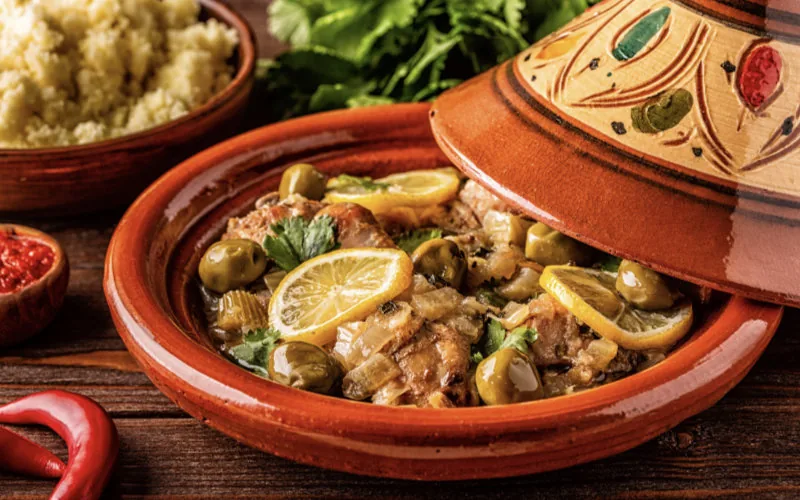UNESCO and Morocco Partner to Create First Global Atlas of Food Heritage

UNESCO partners with Morocco for its global project aimed at publishing for the very first time an international Atlas of food heritage, as well as a digital platform for the safeguarding, promotion, and transmission of food heritage to future generations.
Morocco has already launched a national consultation. Funded by the Ministry of Culture of the Kingdom of Saudi Arabia and carried out with the Moroccan Department of Culture, this innovative project is part of the implementation of the UNESCO Convention for the Safeguarding of Intangible Cultural Heritage, adopted in 2003. It aims to map, document, and transmit food traditions from around the world, recognizing them as a living heritage essential to cultural diversity, sustainable development, and social cohesion, the UN organization specifies in a press release.
The project objectives can be summarized in three points: to map, document, and transmit food traditions from around the world, recognizing them as a living heritage essential to cultural diversity, sustainable development, and social cohesion. Rich in exceptional culinary heritage, Morocco is among the countries selected for the pilot phase of the project. The kingdom will have to prepare the publication of the first version of the Atlas by the end of 2027. This first step will consist of identifying traditional food practices and strengthening local capacities for their safeguarding, it is specified.
While five of the fifteen Moroccan elements inscribed on UNESCO’s Intangible Cultural Heritage lists are related to food practices (for example, the Sefrou Cherry Festival or the know-how related to the argan tree), it has been noted that these practices are now weakened by major issues such as climate change, globalization, or the break in intergenerational transmission. Concerted action is therefore necessary.
"Food practices and culinary traditions are not just recipes. They reflect our identities, our territories, our relationships with others and with nature. By valuing them, we are building a future more rooted in diversity, sustainability, and respect for local knowledge," said Eric Falt, UNESCO Regional Director for the Maghreb, quoted in the press release.
Mustapha Jlok, Director of Cultural Heritage, is convinced that "by actively participating in UNESCO’s Food Atlas project, Morocco highlights the richness of its culinary traditions as a living expression of its intangible heritage." He added: "Alongside local communities, it works to preserve know-how passed down from generation to generation, affirming the deep connection between food, cultural identity, and sustainable development."
Related Articles
-

Legendary Amazigh Artist Benasser Oukhouya Dies at 86, Leaving Rich Musical Legacy
16 July 2025
-

Moroccan-French Journalist Anissa Haddadi Reveals Nostalgic Summer Traditions and Mediterranean Memories
16 July 2025
-

Tragic Death of Moroccan TikTok Star Sparks Debate on Weight Loss Surgery Tourism
15 July 2025
-

Former Miss France Reveals Struggle with Postpartum Recovery and Caesarean Complications
14 July 2025
-

Omar Sy to Lead Netflix’s ’Extraction’ Series: Morocco Set for High-Stakes Action Thriller
14 July 2025